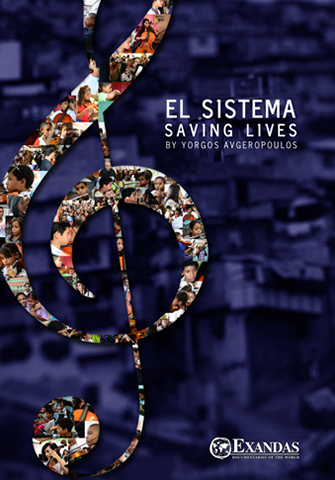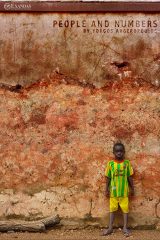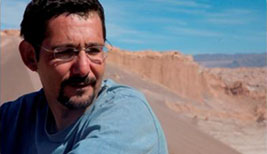
El Sistema – Saving Lives
Dir: Yorgos AvgeropoulosOne afternoon in 1975, in a garage in Caracas, Venezuela, the then 36-year-old music professor and economist José Antonio Abreu began a crusade that seemed completely utopian. He wanted to save as many children as possible from poverty, the streets and criminality, by teaching them free of charge classical music and making them members of a classical Symphony Orchestra.
“There was nothing like the first rehearsal”, reminisces the 74-year old conductor today. “It is the moment I remember with the greatest passion. The rest was a great everyday thrill.”
Only 11 children came to that first rehearsal. But the seed had already been planted in the ground, giving birth to what would later become globally known as EL SISTEMA (The System). An education system and at the same time a weapon against poverty. A tool for social change. An attempt to change the world through music!
Watch the Film Now!
Choose the language you prefer and stream the film in Full HD from any digital device. Enjoy your private screening!
Buy the DVD
Public Screening
Are you interested in organizing a public screening of our film? Send us an email with your inquiry and we will be glad to assist you!
Educational / Library Use
Are you interested in enriching the library of your institution with our film? Contact us and let's create together an informed public!
- DURATION: 51min
- AVAILABLE IN THE FOLLOWING LANGUAGES: English | Greek
- AVAILABLE VERSIONS: English (51min) | Greek (51min)
- YEAR OF PRODUCTION: 2011
- Written, Produced and Directed by: Yorgos Avgeropoulos
- Director of Photography: Vasilis Mourikis
- Production Manager: Anastasia Skoubri
- Research Coordinator: Georgia Anagnou
- Research: Manolis Fylaktidis
- Editing: Vasilis Magos, Anna Prokou
PRODUCTION NOTES
“Poverty is not only the lack of food and shelter. Poverty is to feel nobody and to be deprived of an identity. Music, to be a protagonist in an orchestra, to play an instrument, to sing, gives the child self-esteem, a healthy and beautiful pride, that pulls it out of poverty. Because once the child receives its own musical instrument, it stops being poor. A child with a violin is not poor! Because the violin takes it on a road of ever-growing intellectual wealth.”
Jose Antonio Abreu – Founder of EL SISTEMA
The Caracas barrios are considered, and not unjustly so, one of the most dangerous places on the planet. The criminality rates have hit the roof, surpassing by far the victims of the Mexican drug war, or even the deaths of civilians in Iraq. In 2012, in Venezuela, a country of 27 million, 21,692 people were murdered, which amounts to one person every half an hour. This fact highlights this phenomenon as the country’s greatest problem that the Chavez government will have to face.
3,8 million people, almost half of the capital’s population, live in this difficult and hostile environment, where makeshift homes made of bricks and tin, stretching over a vast surface surrounding Caracas, are sparkling in the sun. Although poverty rates have decreased significantly since 1999, when Chavez came to power, there are still many who try to survive here with 2 dollars a day. So it is unexpected, if not contradictory, to hear Tchaikovsky’s, Mahler’s and Beethoven’s melodies, played with great passion by elementary and high school students, resounding through the labyrinthine alleys. These children, who are seated next to one another in multi-member symphony orchestras, express with notes what words failed to say.
“When I play, I forget everything and find myself in another world”, says 13-year-old Kisber, who learns the violin and lives in Petare, one of South America’s largest barrios with a population of 1,5 million. Her parents live in fear every time she leaves her home. Gunshots occur often and even a man was killed at the corner of their home. The police said it was a “settling of scores”. “I forget all this. The only thing I care about is to become a very good violinist and make other children understand that yes, it is possible! It does not mean that because I come from a poor neighborhood, I will always be poor! I know that with the help of music and the violin I will move forward”.
On his way home to Petare, Ángel’s trumpet was stolen. A boy of 16, he tried to resist two armed thugs, who could have killed him. “They started beating me and took my instrument. They go and sell them for a few bolivars. I am afraid that they will do this again. But I have to concentrate on my studies and the orchestra”. In the afternoons, Ángel goes out in the neighborhood and plays pieces by Tchaikovsky. “Everyone here respects him and takes care of him”, says his mother Ángela, a Colombian immigrant, who came to Venezuela in search of a better life. “They say that he is a credit to this neighborhood. And I hope he succeeds, so that he can leave this bad life behind him”.
A little further away, in the same barrio, lives Mayela, a 16-year-old who plays the violoncello. “Carrying a viola, a cello and a violin we go to the neighborhood’s schools and give small concerts. We try to attract more children, who could have been on the streets and do various things, to participate in El Sistema. And this is good for our society”. Her mother sits and listens to her play. She weeps. “We were given something to which we thought we had no right!”, she says.
There are countless stories of children that were saved by music. When Lenar Akosta was 12 years old, he had already left his home. He was stealing and doing drugs up to the moment he was arrested and taken to juvenile detention. “There, some people from El Sistema came and suggested I play music. I thought they were making fun of me”, remembers Lenar. “I wanted to play the trumpet, but there was none left. The only remaining instrument was a clarinet. And I took it”. Today at the age of 36, Lenar is a clarinetist with an international career. He studied with the help of a scholarship brass instrument making in Germany and is now the director of El Sistema’s music school, named Los Choros, which operates in the same place, where once his juvenile detention center was located.
“The System, contrary to what many believe, does not try to create musicians. It tries to save children and make new citizens, better citizens for the country”, points out Eduardo Méndez, the director of El Sistema. “The System tries to transform people and give them values, tools. It tries to keep children and young people from the streets, to keep them busy by giving them knowledge. And of course, it also has an impact on the people around them, on the communities. A child’s transformation also affects the family. So the family is also being integrated into the program. They come to the concerts. They invite their neighbors, their cousins, uncles and they are proud to see their child’s performance”.
“Because music is invisible, it has the ability to infiltrate the soul”, says conductor Abreu, reminding me of Plato’s quote. “But it does not only infiltrate a man’s soul, but also his collective soul”, he adds. He remembers how difficult it was to transform classical music into something popular and into a product for mass consumption. “Today, everywhere in Venezuela concerts are full and the poorer the neighborhood, the greater is the respect shown by those attending. I always used to say and still do, that culture for the poor cannot be a poor culture. That is why the children and youths in our System, deserve the best music instruments, the best teachers and the best infrastructures. The poorer they are, the worthier they are to receive these great and high levels of quality”.
Almost four decades after its establishment in 1975, Jose Antonio Abreu’s System has spread throughout Venezuela, reaching even the most remote tropical areas. All of the country’s previous governments have supported the program understanding its contribution to society. During Chavez’s rule, support took off, reaching 65 million dollars a year.
The 11 children that came to the first rehearsal have multiplied, reaching now 370,000. They come mostly from the lower classes. They study at 285 schools, which are called “Nucleos”. Within these Nucleos operate 285 child and youth symphony orchestras, while at the same time another 30 professional orchestras have been put together. 5,620 new working positions have been created.
The children enroll in the Nucleos and choose the instrument they would like to play. The instrument is provided for free. The parents have the obligation to pay only €5 a year as participation fee. And here begin the differences with the classic music education system we have been accustomed to. The student does not receive private lessons, but is integrated in a large Symphony Orchestra. He or she learns through playing. As Mr. Méndez, the director of the System, explains: “First of all, this method creates a sense of responsibility, where the student knows that if he or she doesn’t play well it will have an effect on all the other participants. Secondly, it creates a healthy competition between children, who begin to think that if the person beside them can do it, they can also. Using the traditional learning method you would have to study for many years in order to be able to become member of a large orchestra and play a piece by Mahler. That is not the case here. Here, when you reach the age of three or four, you can play Beethoven’s symphony No.1, Tchaikovsky’s 4th and 5th. By the time you reach the age of seven, eight or ten, you can play any difficult and important musical piece.
El Sistema has created world-class musicians, while worldwide known and respected conductors from Europe and the United States travel to Venezuela to conduct 17 and 18-year-old talents. The Simón Bolívar Symphony Orchestra, El Sistema’s flagship, is considered one of the 10 best Symphonies in the world, placing the country among the planet’s large musical forces. The orchestra has performed in almost all countries of Latin America, in Australia, Europe (Germany, Italy, UK (Scotland), Sweden, Norway, Turkey, Finland, Denmark), and Asia (South Korea, Japan, China). But what is most important, is that it has saved dozens of children from misery. I ask maestro Abreu if he believes that he has achieved his initial goals. “No”, he answers. “We are on our way to success, but we still have a long way to go… I believe that we are just at the beginning…”







